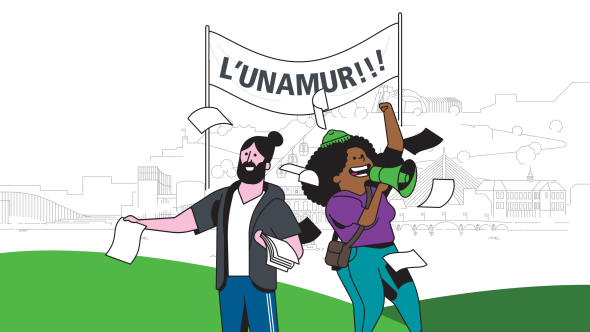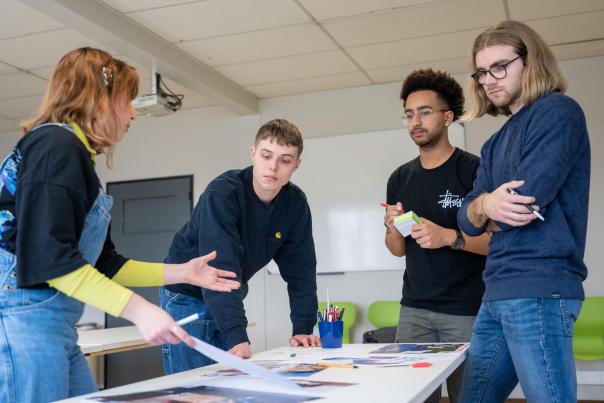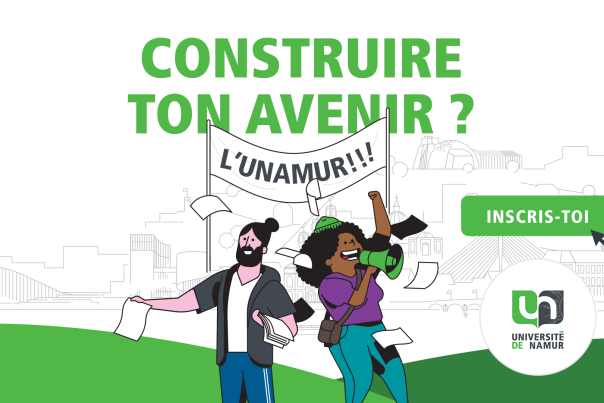In the "Civic Engagement" course, students immerse themselves in an institution of their choice to get as close as possible to the publics concerned. This experience requires them to step back and analyze their commitment. Amélie Pierre explains: "The students get out of their comfort zone and discover other realities outside the academic framework, which makes them very enthusiastic." Natalie Rigaux adds: "It's an extremely enriching experience. We're talking about a real learning community here: students exchange ideas, put their experiences into perspective and question their course."
In the anthropology course, students are encouraged to make volunteering a learning opportunity. Their involvement in the field is part of the immersion method of data collection (or participant observation), very specific to anthropology. This research approach enables them to discover a theoretical field: reception and migration policies, disability or the anthropology of communication, depending on the focus of their study. Thus, on the basis of their involvement, they carry out a reflexive approach, construct an object and formulate a research question.
Service Learning has also been integrated into a course in the Faculty of Computer Science. Fanny Boraita, holder of the "Citizen Commitment" course and pedagogical coordinator of UNamur's Faculty of Informatics, explains: "The "Citizen Commitment" course in the Faculty of Informatics is offered as an option to third-baccalaureate students. We created this course specifically to integrate Service-Learning practice. It was important for us to make students aware of the beliefs surrounding the IT profession, and to demystify them while reflecting on the IT professional they want to become. Indeed, the image of the computer scientist working alone behind his or her computer is sometimes a little skewed. The aim of this course is also to enable students to step out of their comfort zone and immerse themselves in unfamiliar realities where IT can play a part, given its omnipresence in society. In this way, students are encouraged to put their skills to work in the field, to meet a societal need. Service-Learning provides this openness to other realities that students would probably never have encountered."
While some courses emphasize engagement in an academic setting, others place greater emphasis on immersion within an institution. In all cases, Service-Learning is a major asset for students' future careers. In fact, this approach was singled out in 2024 by the Uniservitate Network, which rewarded the EMCP Faculty with a Small Grant and an Award.







